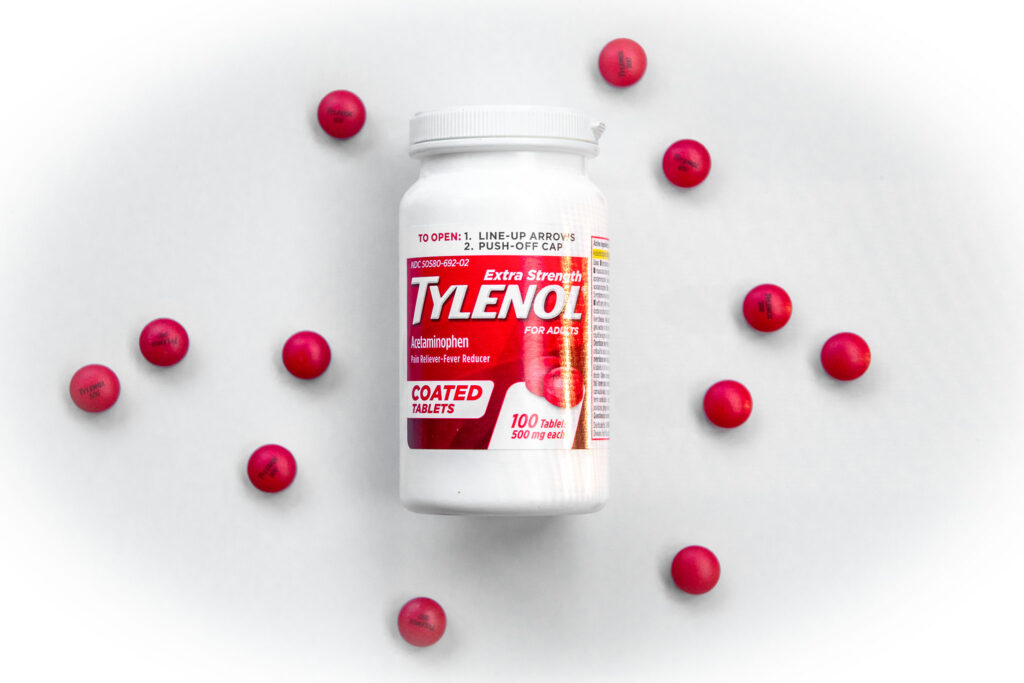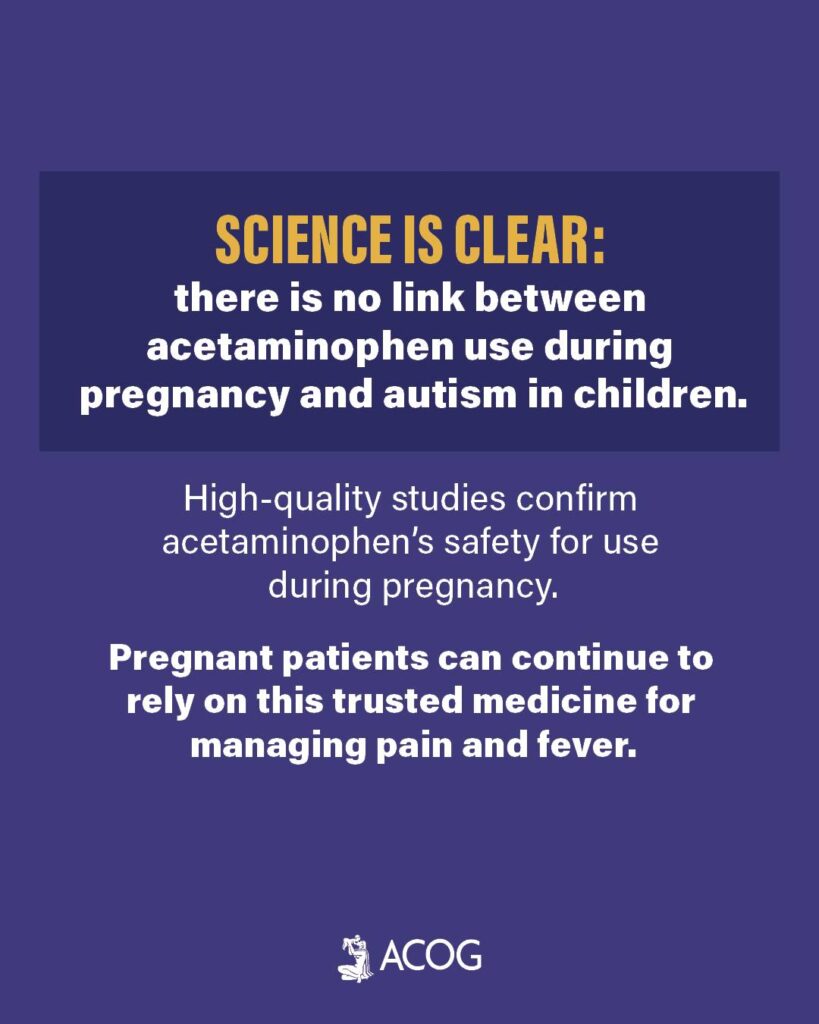
ASHEBORO, N.C. (ACME NEWS) — The U.S. Food and Drug Administration (FDA) has issued a new advisory raising concerns over the use of acetaminophen (Tylenol and similar products) during pregnancy.
The agency said Monday it is beginning the process of updating warning labels to reflect studies that suggest a possible association between taking acetaminophen during pregnancy and later diagnoses of autism spectrum disorder (ASD) and attention-deficit/hyperactivity disorder (ADHD) in children.
In a notice sent to physicians nationwide, FDA Commissioner Martin A. Makary, M.D., M.P.H. urged clinicians to use caution in recommending acetaminophen for “routine low-grade fevers” in pregnant patients. “While an association has been described in many studies, a causal relationship has not been established and there are contrary studies in the scientific literature,” the letter states
The notice cites research suggesting that potential risk may be greater when acetaminophen is taken chronically throughout pregnancy, while also reiterating that acetaminophen remains safer than nonsteroidal anti-inflammatory drugs (NSAIDs) such as ibuprofen and aspirin, which carry well-documented fetal risks.
In a statement, White House Press Secretary Karoline Leavitt said:
“…There is mounting evidence finding a connection between acetaminophen use during pregnancy and autism — and that’s why the Administration is courageously issuing this new health guidance. President Trump pledged to address America’s skyrocketing rates of autism, and his team is deploying Gold Standard Science to deliver on this pledge.”
Doctors and Scientists Push Back
While the White House framed the issue as a matter of “mounting evidence,” scientific experts and even the FDA caution that the existing research shows associations, not causation.
The American College of Obstetricians and Gynecologists (ACOG) quickly pushed back on Monday’s announcement by the FDA and the White House. In a statement shared on social media, ACOG reinforced there is no link between acetaminophen use during pregnancy and autism in children.

“Pregnant patients should not be frightened away from the many benefits of acetaminophen, which is safe and one of the few options pregnant people have for pain relief,” said Dr. Christopher Zahn, ACOG’s chief of clinical practice, in a separate statement.
Other experts have echoed that reassurance. Dr. Salena Zanotti, an OB-GYN with Cleveland Clinic, said that acetaminophen remains the safest option in a blog post on the topic. “When you’re pregnant, it’s riskier to have an untreated fever than it is to take acetaminophen.”
The strongest recent analysis — a 2024 JAMA study of more than 2.5 million Swedish children — found no causal link when accounting for family and genetic factors.
For decades, acetaminophen has been the most commonly recommended pain reliever for pregnant women. Several large cohort studies, including the Nurses’ Health Study II and the Boston Birth Cohort, have reported statistical associations between prenatal acetaminophen exposure and later ADHD or autism diagnoses. But other research, including the Swedish sibling-comparison study, found no increased risk when controlling for family and genetic factors. That study concluded that earlier signals may have reflected familial or genetic confounding rather than a true drug effect.
Public health experts emphasize that association is not the same as causation. As Yale epidemiologist Dr. Zeyan Liew notes, “there is no proven causal relationship between acetaminophen and autism.” Other factors — such as maternal fever, underlying illness, or genetic predisposition — may explain some of the observed associations.
What It Means for Patients
Despite the debate, both FDA and ACOG agree on two central points:
- Acetaminophen remains the preferred over-the-counter option during pregnancy when treatment for pain or fever is necessary.
- NSAIDs such as ibuprofen and aspirin should be avoided in later pregnancy, due to risks including fetal kidney problems and premature closure of the ductus arteriosus.
The difference lies in emphasis. The FDA has chosen a precautionary tone, advising restraint in nonessential use, while ACOG is urging reassurance to prevent unnecessary fear.
Expectant parents should continue to discuss any medication use with their healthcare providers. For now, acetaminophen remains the go-to over-the-counter option during pregnancy, even as research and regulatory debate continue.
👨⚖️ Our lawyers asked us to add this
References to the TYLENOL® name and any depictions of its logo or packaging are for identification and news-reporting purposes only (nominative fair use). We are not affiliated with, endorsed by, or sponsored by the trademark owner, and no association is implied.
TYLENOL® is a registered trademark of its respective owner. All other trademarks are the property of their respective owners. If you are a rights holder you may submit a DMCA takedown notice or contact us via our help center.
This notice is provided for informational purposes and does not constitute legal advice.
###

